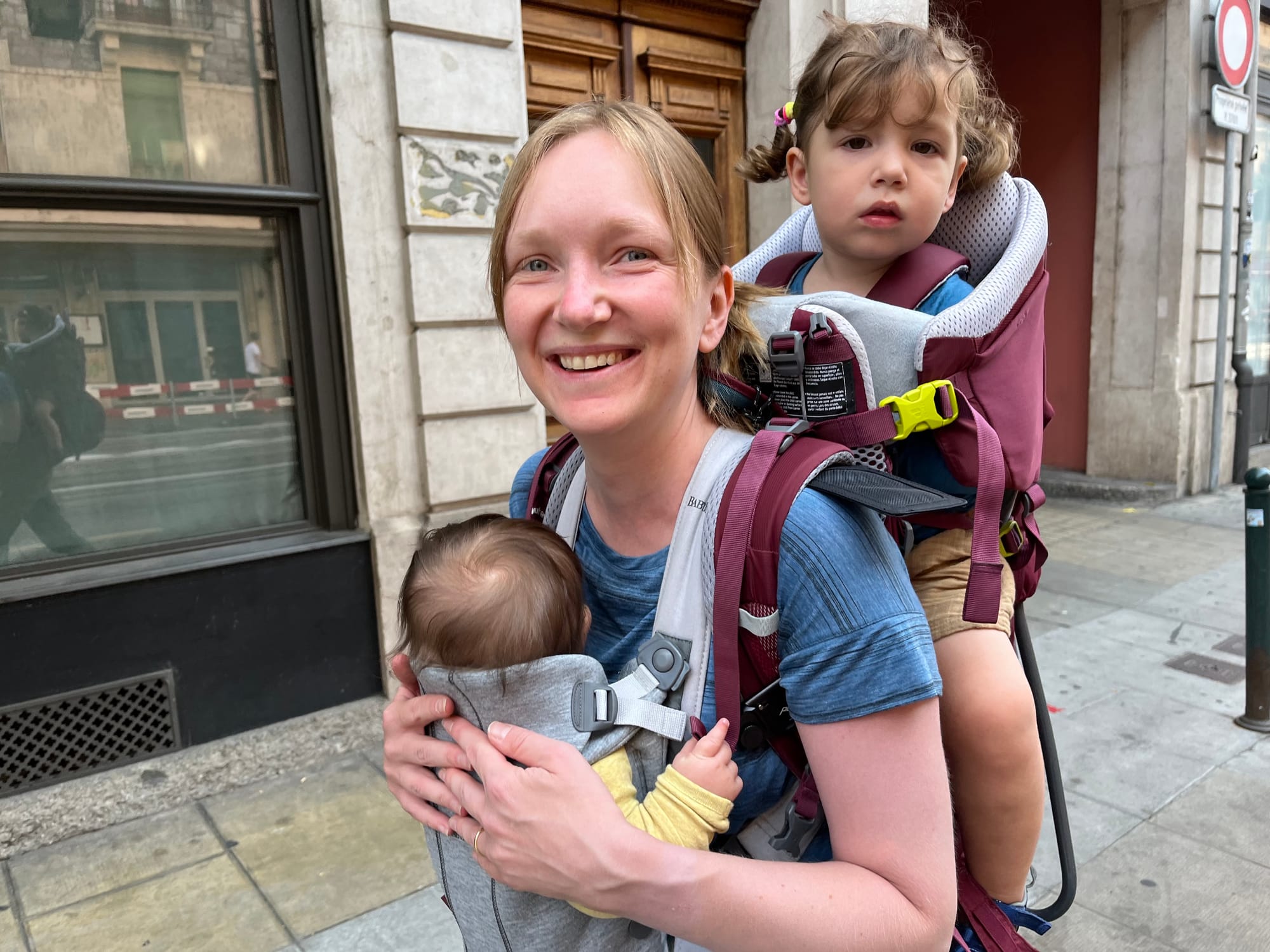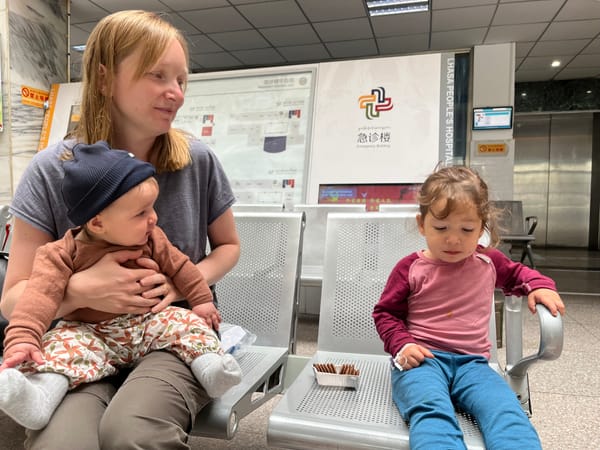
Navigating Healthcare in China: A Tourist's Guide
Our experience visiting hospital in China - what to expect when you need to go to a doctor in China?
Share this post:
Introduction
Traveling to a foreign country can be exciting, but it also comes with concerns, especially when it comes to healthcare.
If you're planning a trip to China with your family, you might be wondering what would happen if you or your children fall ill.
Based on our personal experience and research, we're here to ease your worries and guide you through using healthcare in China as a tourist.
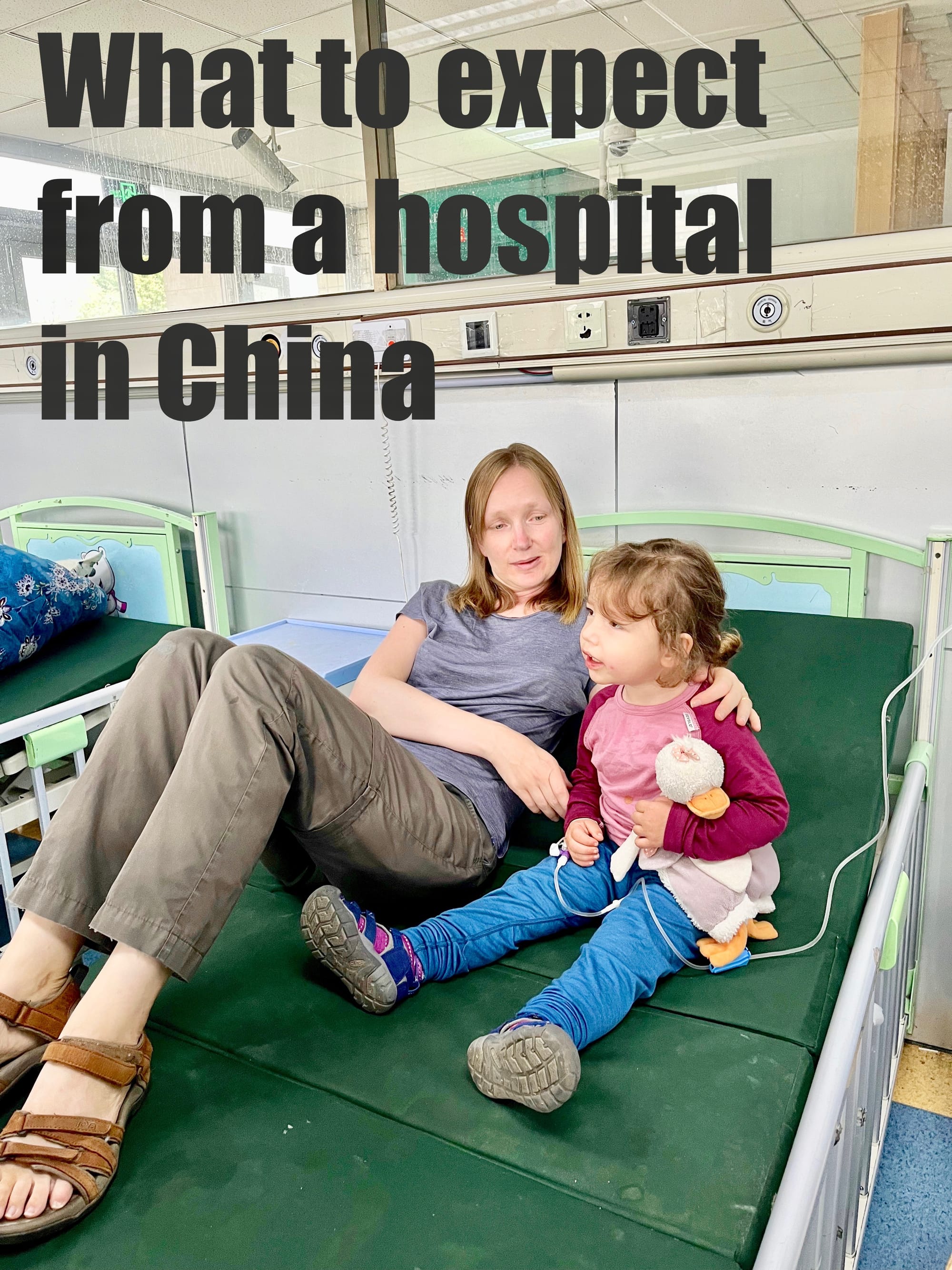
Waiting for treatment in a hospital in Lhasa, Tibet
Overview of China's Healthcare System
China has a publicly owned healthcare system that's accessible to anyone living in the country free of charge. As a tourist, you'll need to pay upfront for services, but the costs are generally very reasonable compared to many Western countries.
What to expect
Language Barrier:
- Most doctors outside major cities like Beijing or Shanghai may not speak English.
- However, hospitals often find English-speaking staff to assist foreign patients.
- Consider using translation apps or services if you're concerned.
Cost and Payment:
- You'll need to pay upfront and can later claim from your travel insurance.
- Costs are generally low compared to Western countries.
- Example: We paid around $100-$150 for two doctor check-ups, blood tests, oxygen treatment, hydration drips, and medications.
Quality of Care:
- Even in less developed areas like Tibet, we found the healthcare system efficient and effective.
- Expect modern facilities and equipment in most hospitals.
Here is everything you need to know written in English. Although targeted at expats, it contains detailed informations about the procedure to follow, and having read through it, it matches our own experience of the hospital in Lhasa.

Our experience with the Chinese hospital
We were in the middle of our stay in Tibet, when our older daughter Hanna was suddenly struck by a stubborn fever. After few days of the temperature spikes about her health, we decided to seek medical attention at a local hospital. Luckily, we had a guide who could assist us with translation, so we didn't have to worry about the language that much.
Despite our initial fears, everything ran smoothly. We didn't experience long waiting times, and we knew what is happening every step along the way.
After completing necessary paperwork and a brief wait, we were able to see a doctor. The physician conducted the examination that included a blood test and diagnosed Hanna with a viral infection.
She prescribed a treatment - medications for sore throat and fever and supplementary treatments - oxygen inhalation (probably a standard at high altitude) and hydration drips.
Medicines maybe weren't that kids-friendly - no peach flavoured syrop or anything of that kind - but they sure worked.
After 3 days of treatment she recovered completely, and already after the first day she seemed to be much better. The hydration helped to elevate her mood and brought the appetite back.
The cost of treatment was nothing compared to what we are used to - for the price of everything we paid we wouldn't even be able to get a doctor's appointment back at home. I think we probably paid around $100 for EVERYTHING. It is worth remembering that for Chinese residents healthcare is free of charge.
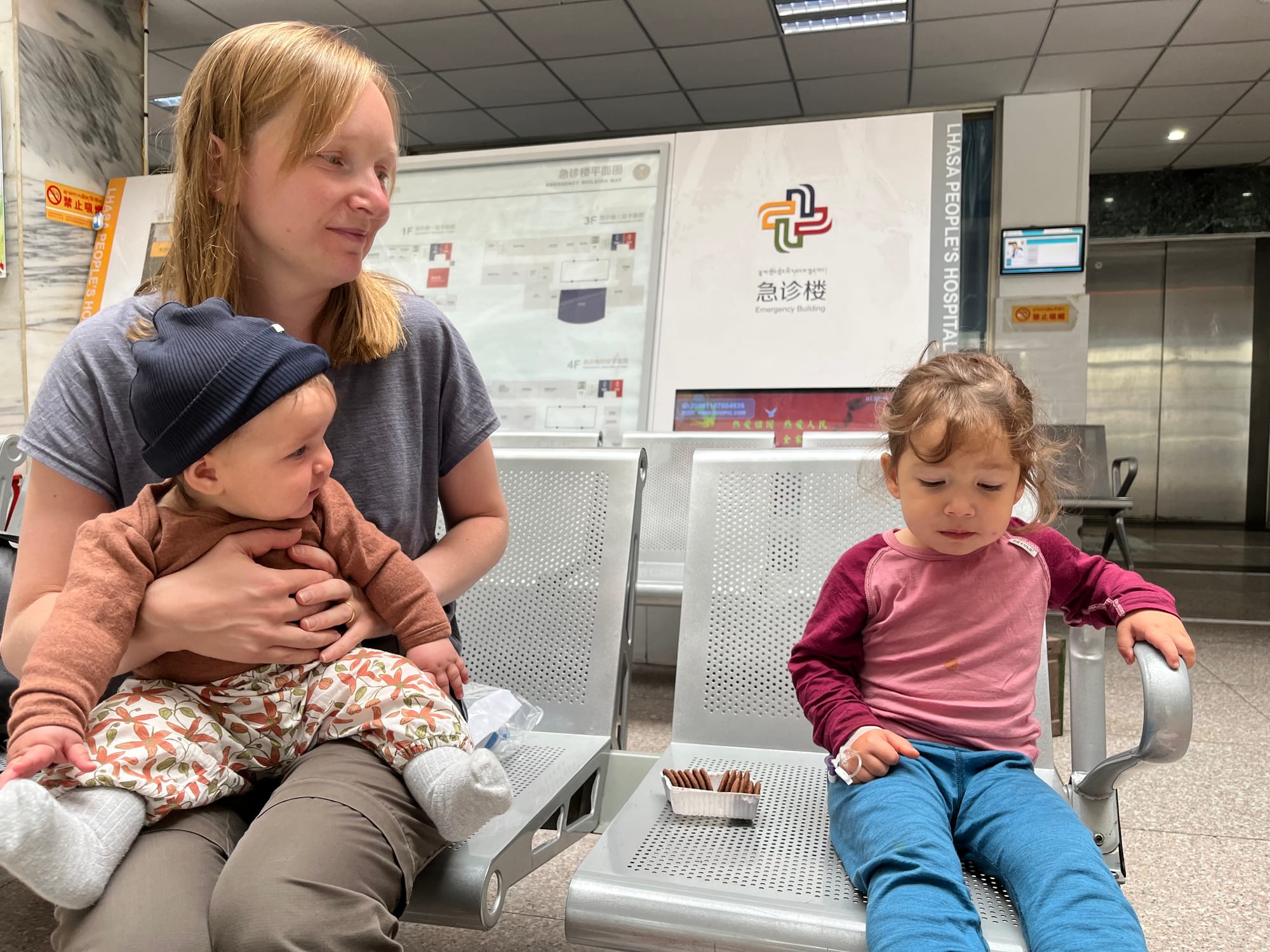
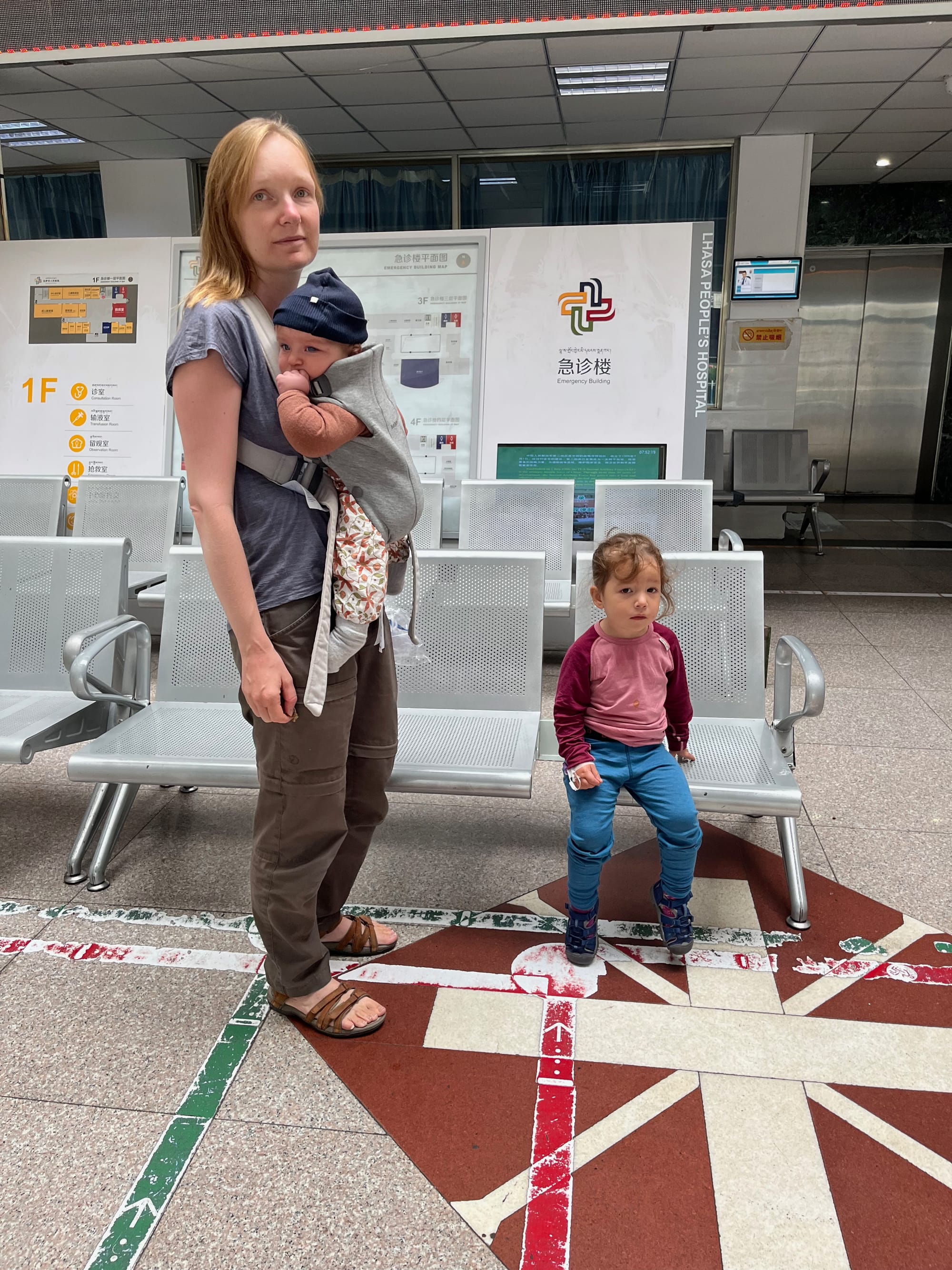
Visiting a pharmacy
When your child is mildly sick - has diarrhoea, or is vomiting, has fever - it is worth visiting a pharmacy.
From what we experienced, the over-the-counter medicines are rather mild, so it is a good idea to bring along supplies from home.
When we needed to buy medications for vomiting, it was challenging to explain what we need. However, the pharmacist made a live video call with the doctor, and she found medicines we needed, which helped indeed.
When your child is sick and you go to a pharmacy, it is a good idea to stay in a Western brand hotel where the staff will speak English - they might offer to help you with translation - this is what helped us when we visited a pharmacy in Changsha.
Additional Tips for Tourists
- Travel Insurance: Always have comprehensive travel insurance
- Bring Supplies: Pack familiar medications for common ailments
- Language barrier: Even if you know some basics of Mandarin, don't expect to be able to communicate this way. Use translation apps with a help of gestures. Make sure you type short and simple sentences to translate, use simple words. More complicated sentences tend to be incorrectly translated and cause confusion.
- Hotel Help: Western brand hotels often have English-speaking staff who can assist
- Be Prepared: Have your passport and cash ready for hospital visits
Conclusion
Based on our experience, public healthcare system as it is implemented in China works efficiently and you don't have to be worried about what happens when you get sick during traveling.
Even in one of the poorer provinces like Tibet, everything runs without issues - I am sure that in places like Beijing or Shanghai your experience would be even better.
The only thing you need to be aware is that probably very few doctors would speak English, but that should not be a problem given the number of live translation apps available on the market.

